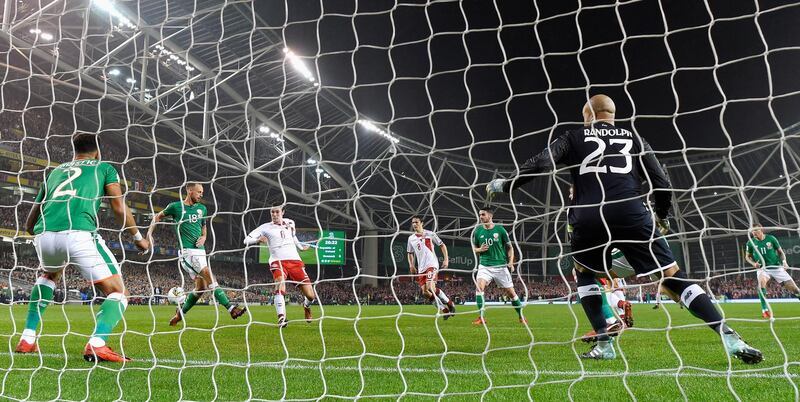There was a time when the only way to watch live sport in your living room was via the handful of terrestrial channels picked up by a television antenna.
But today there is a plethora of digital and linear platforms through which fans can consume all sorts of games, matches, tournaments and competitions.
It means there is more choice than ever before. Anyone with a satellite or cable subscription probably has a choice of around 15 different channels all dedicated exclusively to sport while access to any sort of internet connection increases these viewing options exponentially.
Competition for the broadcast rights to sporting events has also intensified with traditional televised sports networks spending unprecedented sums. The value of rights to blue-chip events such as the English Premier League (EPL) and US National Football League (NFL) is now measured in the multi-billions.
Still, according to Will Mao, a vice president at Octagon Global Media Rights Consulting, there is plenty of potential for traditional broadcasters and digital platforms to work together.
"What we are seeing is a 'frenemies' situation brewing; sometimes digital and linear broadcasters will compete for the same rights [as in the cases above] but other times the traditional linear operators will partner with a Facebook or an Amazon as an additional distribution outlet for themselves in complement to owned and operated properties," he tells The National.
There are several examples of this already happening including the partnership between Fox Sports and Facebook that will see the social media platform live stream certain UEFA Champion’s League (UCL) football games in the US. The regional broadcaster BeIn Sport also has a partnership with the video on demand (VOD) subscription service DAZN in Canada.
Ashwin Sridhar, the head of digital for Fox Networks in Asia, says he is more concerned with exploiting the opportunities offered by digital platforms than any nascent rivalry.
“The reality is that a lot of consumers' attention time is being spent on these platforms so any content producer needs to look at these platforms as a way to reach and engage with audiences in a slightly different way and we are doing that," he says.
"We have had very good success in broadening our audience base by leveraging these social media platforms."

Middle East audiences recently got a glimpse of what a future in which over the top (OTT) platforms replace traditional broadcasters might look like. This year Twitter streamed the Arab Championship, an inter-club football tournament that took place in Egypt, with every match available to view completely free of charge.
Kinda Ibrahim is the director of media partnerships for Twitter in the Middle East and North Africa. She says Twitter’s coverage of the Arab Championship allowed viewers to engage in a manner that would not have been possible on a linear platform.
"We launched six exclusive emojis throughout the tournament enabling fans to discuss the games and support their favourite teams. More than 400 video Tweets were shared by the Union of Arab Football Associations account during the championship which included analyses, highlights, behind the scenes coverage and exclusive Q&A sessions," she tells The National.
Ms Ibrahim says Twitter is actively exploring future opportunities to stream live sporting events for Middle East audiences,
“We continue to attract significant interest from new content partners and advertisers in the region wanting to participate in live-streaming opportunities on Twitter across multiple verticals; sports, news and entertainment. We already work closely with sports publishers in the region such as Abu Dhabi Sports and ON Sport.”
Facebook claims to have 164 million monthly active users in the Mena region, while research suggests that the UAE has a higher percentage of smart phone users than any other country. Ms Ibrahim feels the Arabian Gulf region offers a unique opportunity for expansion due to the sheer size of the online audience
______________
Read more:
EPL transfer amount touches £1bn driven by TV money
Football has come a long way since first £100 deal
Facebook leads way as sports streaming looks to go mainstream
______________
“The Gulf region represents some of the largest group of active internet users. Since opening our office in Dubai in 2015 we’ve been seeing accelerating growth in year-over-year revenue across the Middle East and this has continued in 2017,” she says.
Competitions such as the Gulf Championship might attract little interest outside of the local region but Twitter has already signed deals with the three biggest professional sport leagues in the US.
“Globally, we announced approximately 30 new live streaming partnerships during Q3. We already brought hundreds of hours of new exclusive live original programming with sports partners that include NBA, MLB and NFL,” Ms Ibrahim says.
However, there is some speculation that the sporting rights spending bubble will eventually burst. The American sports media conglomerate ESPN’s announcement this year that it was laying off hundreds of staff raised eyebrows in the industry. According to Nielsen data, ESPN lost 11.3 million US subscribers between July, 2011 and August, 2016.
Yet ESPN’s decline does not necessarily reflect a decrease in the number of people interested in watching sport. According to Simon Chadwick, a professor of sports enterprise at Salford Business School near Manchester in north-west England, it could simply be down to a rapid recent evolution in viewing habits,
"Facebook and Amazon have helped create a broad shift in attitudes towards media consumption over the last two decades and now stand on the cusp of winning large contracts for the generation and transmission of content in sport," he tells The National.
"The NFL has already agreed deals with Twitter to broadcast Thursday-night games live on social media. We are only at the start of what will ultimately become a major shift in the way sports are delivered and consumed."
There is no doubt that some online platforms or social media networks have the economic resources to bid for broadcast rights to the most prestigious sporting events. However, Mr Mao, questions whether these companies could realistically expect to see a suitable return on their investments.
“Financially, tech firms like Amazon and Facebook have the coffers to compete for the same top-tier rights that linear broadcasters have been bidding each other up for all this time," he says.
"But the evaluation still depends on their ability to make the necessary returns on such an investment through their respective commercial models. Typically, digital bids are still comparatively pennies on the dollars relative to the linear offers for the same portfolio of rights, especially in the context of domestic media rights values.”
Mr Mao gives a couple of examples to demonstrate this, pointing out that Facebook recently offered US$600 million for the rights to stream online matches from the Indian Cricket League. That move sent shock waves through the industry but ultimately the social media network was easily outbid by Star Sports who sealed a $2.55 billion deal both for linear and digital coverage.
Other deal making that made the headlines includes Amazon's win of the global digital rights for the NFL’s newly introduced Thursday-night football matches. The e-commerce and cloud computing company reportedly paid $50m for the right to stream 10 matches during the season, although this figure is dwarfed by the $450m NBC and CBS paid for US television rights.
Prof Chadwick believes that eventually digital companies such as Twitter, as well as Facebook, Amazon and Netflix, will transform the market for sporting broadcast rights. However, he thinks this revolution is happening at a slower pace than some of the media frenzy might suggest.
“At the moment, the actual impact is possibly not as significant as the perceived threat. Most sports organisations are currently locked into long-term contracts with existing media partners, hence, there haven't yet been any dramatic changes yet,” he says.
According to him the opportunities created by the increase in potential platforms for viewing live sport are actually benefiting some small to medium-sized companies,
“Ultimately, one senses that the industry will concentrate and we will see large corporations accounting for the largest proportion of market share. In the meantime there are some interesting opportunities ahead for smaller corporations to innovate and disrupt," Prof Chadwick says.
"We are likely to witness a period of turbulence in the short to medium term where there are opportunities for new or niche operators to gain some traction in the market."
Mr Mao agrees that major players in the market such as Fox Sports and ESPN will eventually evolve and adapt. He thinks traditional broadcasters might be able to retain a stranglehold on the market even if they are not broadcasting by traditional methods.
“The format of signal delivery and the device of consumption may be changing [but] the content provider may end up being just a different brand name for the same media corporations we’ve been giving our money to all along.”
So the days when people could use a coat hanger as a makeshift TV aerial to watch a football match at home are almost at an end.
It is a new era and online platforms offering OTT services are transforming the market, making sport more accessible to audiences than ever before and forcing traditional broadcasters to radically rethink their business strategies.
As some might say: back of the net.






